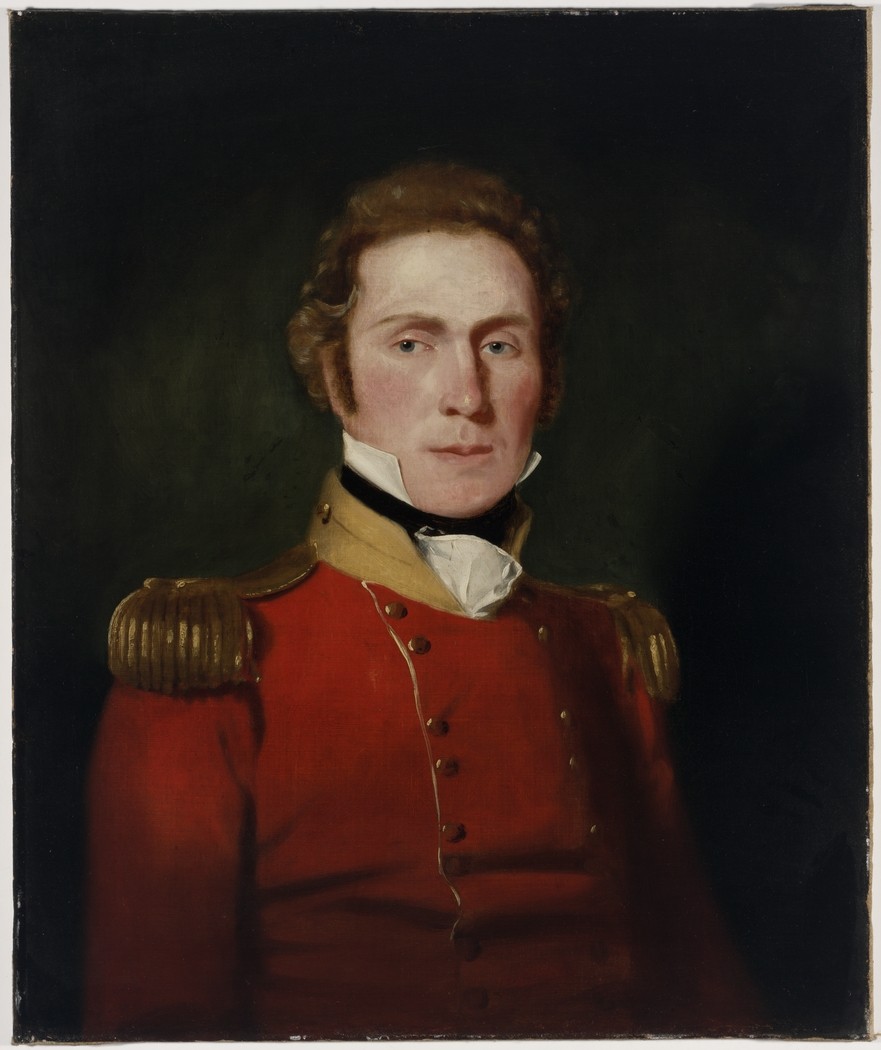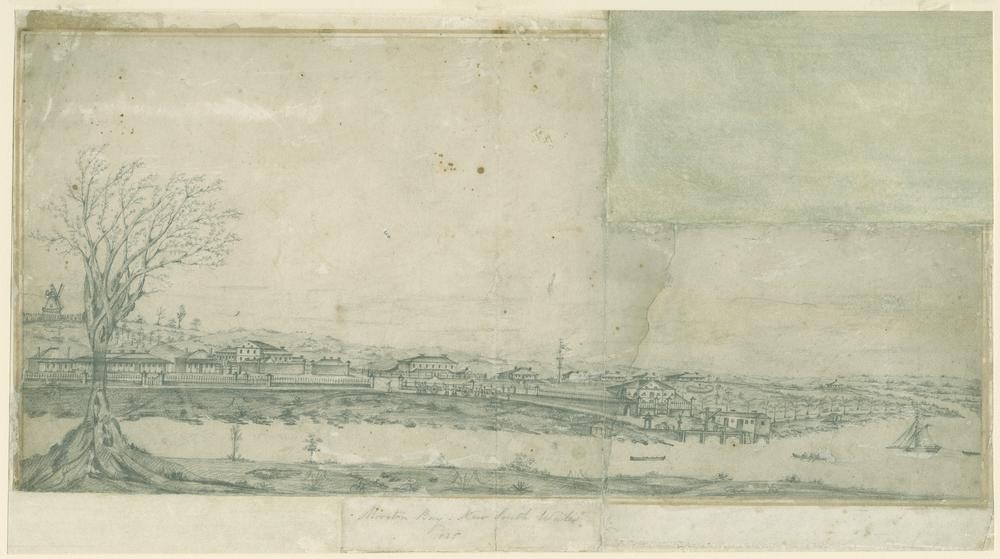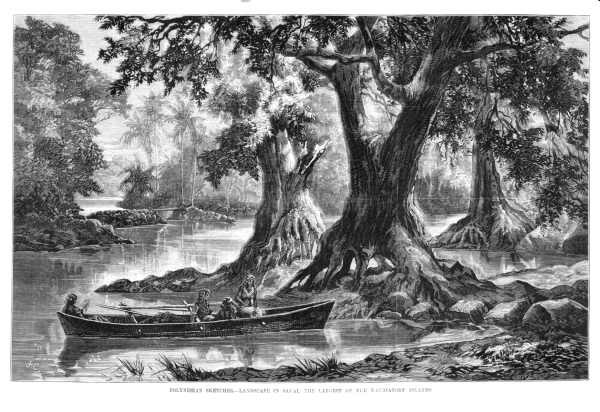Pirates in Moreton Bay!
By Simon Miller, Library Technician, State Library of Queensland | 19 September 2012
In 1831 the convict settlement of Moreton Bay was a harsh place. From 1826 until 1830 the settlement was commanded by Captain Patrick Logan. Logan worked hard to establish the settlement as a viable colony and led important explorations of the surrounding areas but he also had a reputation for harsh discipline. Floggings were common with prisoners receiving from 50 up to 300 lashes at the notorious triangles and the convicts were expected to work long hours of hard labour on short rations. Prisoners frequently absconded to the bush but were nearly always forced back by the prospect of starvation. Captain Logan was killed by aborigines during an expedition to explore the upper reaches of the Brisbane River in October 1830. The convicts were happy to see the end of Logan but conditions at Moreton Bay remained harsh.

In December 1831 the schooner Caledonia was on its way from Sydney to Loo Island in order to salvage what remained of the wreck of the America. The Caledonia was anchored at Moreton Bay when a party of convicts came aboard at night and, taking the crew by surprise, took over the ship and seized all the weapons on board. The boats that took supplies to and from ships in the bay were manned by convicts who had experience on boats. A number of the party of eleven convicts who captured the Caledonia were experienced seamen but none had a knowledge of navigation. Thus when they put the crew of the ship in the boat they had used to get aboard, they forced the Captain to remain on board.

George Browning, Captain of the Caledonia, was 26 years old and had arrived in Sydney in 1822 as second mate of the Lord Rodney. Browning tried at first to convince the pirates that he did not know how to manage the ship but they knew he was the Captain. They demanded that he navigate the ship to some Pacific island where they hoped to get passage to England on a whaling ship. Seeing no alternative, as the pirates would clearly not hesitate to shoot him if he refused, Captain Browning agreed to navigate the ship to a suitable island. Browning pretended some sympathy with the pirates "saying, that it was a pity for fine young fellows like them to be lagged from their native country, and how natural it was for all men to flee from bondage, and suchlike expressions; and by this stratagem, gained their confidence, and averted his own destruction."
These convicts, turned pirates, were a far from unified crew. Six were English and five Irish and a week into the voyage the pirates argued and several of the Irishmen were called one by one on deck and murdered, one being shot and the others thrown overboard. When the ship arrived at New Caledonia to get water the pirates argued over grog and one Hastings was left behind. At another island they lost a man who was clubbed to death by the natives when he came ashore and at Rotumah another of their number ran away, preferring to take his chances with the natives rather than his fellow pirates.
Eventually the ship arrived at an island called Savi where Captain Browning expected the worst, having heard the pirates planning to scuttle the ship with him aboard, but the pirates changed their minds and took him on a boat to the island after sinking the Caledonia in deep water. Fortunately Browning found the native people very friendly and he was housed comfortably by one of the chiefs. After Browning and the remaining pirates had spent some time on the island an English whaling ship, the Oldham, arrived and Browning was able to get aboard. One of the pirates named Evans tried to pass himself off as the captain of the Caledonia but Browning was able to establish his identity with the support of the natives and Evans was arrested. The other three pirates avoided capture and remained on the island and Evans jumped overboard during a storm, evidently preferring a watery grave to colonial justice.

Captain Browning transferred to an American whaling ship, the Milo, which was bound for Sydney, where he arrived "in good health and spirits, to the great surprise and happiness of an extensive circle of friends." Captain Browning wrote a narrative of his adventures, versions of which were published in the newspapers of the time. Piracy was published in the Sydney Gazette and New South Wales Advertiser on May 17, 1832 and Narrative of Captain Browning was published in The Sydney Herald in May 17, 1832. There is a fictionalised and rather fanciful account published as The Schooner Caledonia : a narrative of the early days of Moreton Bay by 'Kai Wai Quasi' published in serveral parts in The Queenslander beginning May 5, 1894. This account has one of the convicts eventually making a death bed confession to the murder of Captain Logan!
Browning was very fortunate to have transferred off the Oldham when he did as shortly afterwards the entire crew were massacred at Wallis Island after seemingly being mistaken for American whalers, who the natives feared would seek retribution after they had killed a local chief who had been a particular friend of American traders. The Oldham was found drifting with not a soul aboard as reported in the Launceston Advertiser of 24 July, 1932
George Browning, having survived being captured by pirates, and avoided the fate of the crew of the Oldham, went on to have a successful career as a sea captain in the Pacific. He died in 1887 at the age of 82 and is buried at Rookwood Cemetery in Sydney. His obituary was published in The Inquirer and Commercial News in August 1887.
September 19th is International Talk Like a Pirate Day! Arrrrgh!
Simon Miller - Library Technician, State Library of Queensland
Comments
Your email address will not be published.
We welcome relevant, respectful comments.